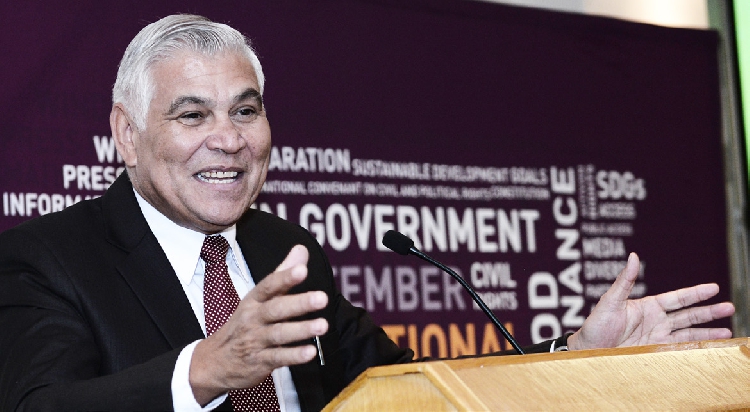A Thought-provoking interview with former first lady Monica Geingos on SABC News left me thinking about her insightful analysis of public service delivery in Namibia.
Her perspectives inspired a deep reflection on the state of our institutions and their role in the nation’s development – a key lesson for Namibia’s incoming government in 2025.
Let’s set aside the president, cabinet and parliament for now and focus on the technocrats who run our institutions.
These institutions form part of the triple helix of any nation, which includes the university, the industry (institutions) and the state.
The critical question is: Who drives these institutions to success or failure?
While the majority believe it is the president, they exclude the recruits who lack accountability and the entrenched culture within these institutions.
For instance, take entities like the Electoral Commission of Namibia (ECN) and the National Youth Council (NYC), which have faced persistent challenges, compared to those like the Namibia Revenue Agency and the home affairs ministry which largely perform commendably.
Credit must be given to those technocrats who ensure success thanks to their leadership and accountability within the public sector.
EFFICIENT GOVERNANCE
I believe that if a country’s processes, systems, and institutions – the components of the triple helix – are functional, just about anyone can be president.
This means a nation’s progress depends, more or less, on the effectiveness of its systems, processes, and institutions across academia, the state and industry.
History offers us some lessons.
Singapore, often cited as a model of efficient governance, embraced the principles of effective public service under the leadership of Lee Kuan Yew.
His ‘porcelain rice bowl’ analogy is particularly instructive: “We never went for the iron rice bowl. Each person has their own porcelain rice bowl, and if you break it, it’s your bad luck. They look after it when it is their own and it is porcelain.”
This philosophy emphasises that everyone has a critical role to play in national progress.
Public servants must view their work as fragile yet essential.
Like a porcelain rice bowl, their service must be handled with care and diligence because any failure harms both the individual and the nation.
In contrast, an ‘iron rice bowl’ mindset creates complacency as it tolerates poor performance without consequence.
Unfortunately, too many in the Namibian public sector tend to embrace an ‘iron rice bowl’ mentality.
Public servants continue to receive salaries regardless of the quality of their service delivery.
This complacency undermines national progress and harms the very citizens these institutions are meant to serve.
Poor service delivery deprives communities of opportunities and slows the country’s development, as every wasted resource could have been used to transform lives.
QUALITY OF SERVICE
Meanwhile, the private sector appears to have largely mastered the importance of accountability, perhaps driven by the immediate consequences of job losses and profit declines.
Here, the ‘porcelain rice bowl’ philosophy prevails.
Employees and companies alike understand that their survival depends on the quality of their service.
The public sector forms the backbone of Namibia’s triple helix and must rise to the occasion.
With Namibia’s new government set to take office on 21 March, significant progress will remain elusive unless public service delivery improves.
Without this transformation, we risk enduring the same cycle of inefficiency and poor performance in the majority of our public institutions.
However, by instilling a sense of ownership and accountability, we can ensure that our public servants treat their roles with the care and dedication they deserve.
In this way, we can elevate service delivery to meet the standards needed to drive Namibia’s development forward.
It is time to reimagine the public sector as “someone’s business” rather than “nobody’s business”.
– David Junias is a consultant for the #BeFree Movement of the One Economy Foundation. The article is written in his personal capacity; davidjunias@gmail.com
Stay informed with The Namibian – your source for credible journalism. Get in-depth reporting and opinions for
only N$85 a month. Invest in journalism, invest in democracy –
Subscribe Now!








